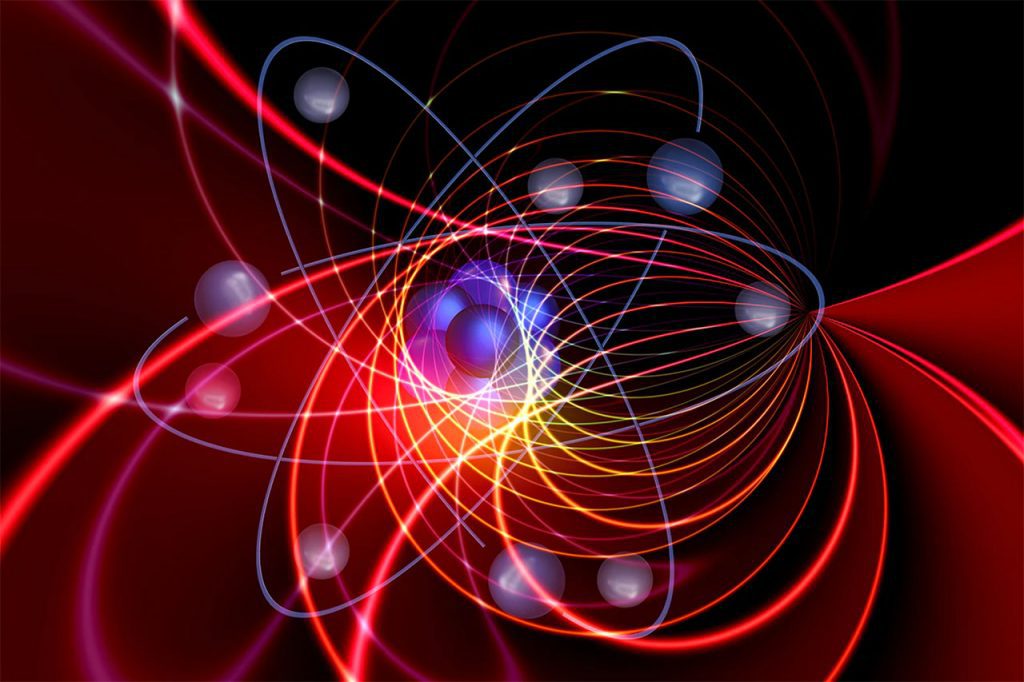Quantum physics, an intricate tapestry of theory and empirical evidence, continues to provoke profound philosophical and scientific inquiries regarding its completeness. From its historical inception in the early 20th century to the contemporary pursuit of unifying it with classical mechanics, the question persists: is quantum physics complete now? This discussion intricately weaves together the foundational concepts of quantum mechanics, the implications of its interpretations, and the emerging challenges posed by modern physics.
To commence, it is paramount to delineate the tenets of quantum physics. At its core, quantum mechanics elucidates the behavior of matter and energy at the subatomic level, characterized by phenomena such as wave-particle duality, superposition, and entanglement. These principles starkly contrast with classical mechanics, leading to a profound re-evaluation of determinism and locality. Quantum mechanics posits that particles do not have definite states until measured, introducing a probabilistic framework that has been experimentally substantiated through various pioneering experiments including the double-slit experiment and Bell’s theorem.
The conceptual landscape of quantum physics is further enriched by its interpretation. The Copenhagen interpretation, arguably the most heralded among scientists, asserts that quantum systems exist in superpositions that collapse into definite states upon observation. Conversely, the many-worlds interpretation offers a radical divergence, positing a branching universe in which all possible outcomes of quantum measurements are realized. These interpretations amplify the discourse surrounding the completeness of quantum mechanics. Are we to accept a probabilistic model rooted in the subjectivity of observation, or can we envisage a deterministic framework that accounts for the observer without necessitating their presence?
As these theoretical paradigms burgeoned, notable physicists have wrestled with their implications. Einstein’s famous critique, “God does not play dice,” epitomizes the skepticism towards a probabilistic interpretation of quantum mechanics. His aversion towards inherent randomness initiated debates that reverberate within theoretical circles to this day. Comparatively, the notion of “quantum realism” posits that quantum systems possess definite properties independent of observation, a stance evoking the insistence on ontological realism that underpins much of classical physics. The tension between these viewpoints is symptomatic of the broader discourse regarding the completeness of quantum physics, revealing the chasm between empirical validation and philosophical interpretation.
Delving deeper, one must consider the limitations of existing quantum theory. Quantum field theory, which merges quantum mechanics with special relativity, has been an unparalleled success in describing electromagnetic and weak interactions, yet discrepancies arise in reconciling these theories with gravity. The quest for a quantum theory of gravity remains one of the preeminent challenges in contemporary physics. The inadequacy of current frameworks to bridge this gap raises pivotal questions: Does this signify an incomplete theory, or is it a symptom of our limited understanding? The advent of string theory and loop quantum gravity represents exploratory endeavors to elucidate these complexities, yet neither has garnered unanimous acceptance within the scientific community.
Furthermore, consider the realm of quantum information theory, which continues to expand the understanding of quantum phenomena in the context of computation and communication. Quantum entanglement, once merely a theoretical curiosity, now underpins quantum computing paradigms and quantum cryptography. The implications of these developments transcend mere technological advances; they induce a philosophical renaissance, challenging the classical notions of information, causality, and locality. Quantum entanglement distances itself from conventional understanding, leading to inquiries about the interconnectedness of distant particles, hence straining the concept of locality that has been a bedrock of classical physics.
Moreover, numerous experimental challenges continue to arise as technology advances. Quantum technologies such as quantum sensors and quantum communication systems rely heavily on principles derived from quantum mechanics. As these technologies mature, the phenomena underlying their functionality are continuously tested, revealing new facets of quantum behavior that may transcend or complicate existing paradigms. Observational discrepancies, such as those related to the foundations of quantum mechanics, further underscore the inquiry into completeness. These developments fuel an ongoing reevaluation of existing theories, driving a dialectical exchange between empirical evidence and theoretical interpretation.
In conjunction, the philosophical ramifications of quantum mechanics cannot be overstated. The implications stretch far beyond the confines of physics, permeating ethics, epistemology, and metaphysics. Does quantum uncertainty impart a form of intrinsic randomness to the universe, or does it reflect the inherent limitations of human knowledge? How do these quantum underpinnings influence concepts such as free will and determinism? Engaging with these questions illuminates the profound intersection of science and philosophy, challenging traditional dichotomies within cognitive frameworks and igniting discussions that traverse disciplines.
Ultimately, the question of whether quantum physics is complete remains an open and multifaceted inquiry. The interplay between theoretical robustness and empirical validation fosters a dynamic yet tumultuous landscape. As theoretical physicists endeavor to bridge gaps in understanding, whether through emergent frameworks like quantum gravity or through unconventional interpretations, the discourse surrounding the completeness of quantum theory will inevitably evolve. Thus, while quantum physics as it stands provides a remarkably potent and quantitatively successful account of subatomic phenomena, the road to comprehensively understanding the quantum realm appears far from finished. Each question unanswered only serves to stir the pot of inquiry, beckoning scholars to embark upon further explorations into the enigmatic world shaped by quantum mechanics.












